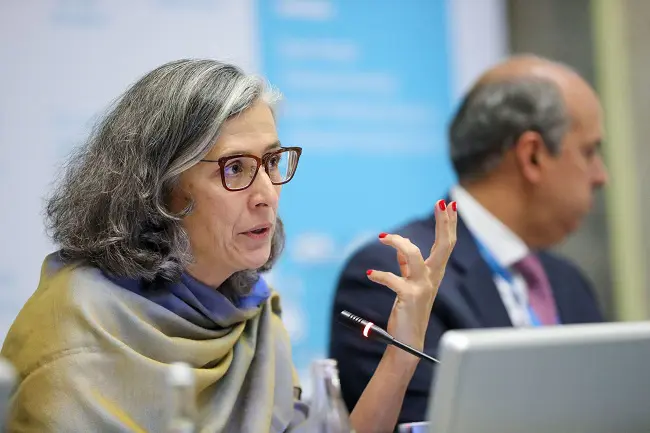The first session of the Open-ended Intergovernmental Expert Working Group on Adequate Housing for All concluded recently in Nairobi, Kenya, with a call to accelerate global efforts to ensure safe, sustainable, and affordable housing.
Convened under the mandate of Resolution 2/7 on adequate housing for all adopted during the second session of the United Nations Habitat Assembly in 2023, the session brought together over 200 participants, including ministers, ambassadors, and housing experts, to discuss practical solutions to the global housing crisis.
A unified call for action
“It is not possible to transform informal settlements without addressing the challenges of adequate housing together,” said Anacláudia Rossbach, Executive Director of UN-Habitat.
Throughout the session, participants stressed that adequate housing must be part of a broader strategy that includes urban planning, infrastructure, social services, and economic opportunities. They noted that addressing informal settlements and tenure insecurity requires a collective, comprehensive response that goes beyond housing alone.
Edna Elena Vega Rangel, President of the United Nations Habitat Assembly, also highlighted the importance of collaboration.

“It is very encouraging to see so many experts from around the world who have come together to join this discussion on adequate housing,” she said.
Her remarks reinforced the session’s focus on global partnerships, with participants highlighting the need for international cooperation and the sharing of best practices to solve the housing crisis.
Key outcomes: collaborative solutions for housing
The session highlighted several takeaways for accelerating progress on adequate housing:
- Integrated housing policies: Participants emphasised the need to align housing strategies with broader urban development goals. They agreed that policies should address not only housing but also urban planning, informal settlements, tenure insecurity, and social equity, ensuring that housing is part of a comprehensive approach to urbanisation, infrastructure, and climate resilience.
- Innovative financing: A strong focus was placed on scaling up innovative financing models, such as rent-to-own schemes and public-private partnerships. Kenya’s Affordable Housing Programme was cited as an example, demonstrating how governments can incentivise low-cost, equitable housing while ensuring sustainability and long-term affordability.
- Data-driven solutions: Experts stressed the importance of robust data systems to guide decision-making, identify housing gaps, and monitor progress.
- Partnerships for action: The session underscored the importance of collaboration between governments, civil society, and the private sector. Participants highlighted the role of South-South cooperation and knowledge-sharing, which are key to scaling up successful housing solutions globally and ensuring that they are inclusive and sustainable.
Learning from Mukuru: Kenya’s affordable housing initiative
A major highlight of the session was a field visit to the Mukuru Affordable Housing Project (AHP) in Nairobi, Kenya. Delegates had the opportunity to see firsthand how the project is transforming one of Nairobi’s largest informal settlements.
Mukuru, home to over 100,000 people, is part of Kenya’s Affordable Housing Programme, aimed at addressing the country’s significant housing gap. The Mukuru AHP features over 13,000 housing units offered under a rent-to-own model, making homeownership accessible to low-income residents.
Delegates toured the site and discussed the innovative financing model and use of an online platform to ensure equitable access to housing. The Mukuru AHP provided an example for other countries seeking to combine affordability, inclusivity, and sustainability in housing delivery.
What lies ahead?
Looking forward, the Open-ended Intergovernmental Expert Working Group will build on the outcomes of the session to develop recommendations for the next United Nations Habitat Assembly. These recommendations will aim to accelerate progress toward achieving adequate housing for all by 2030.



